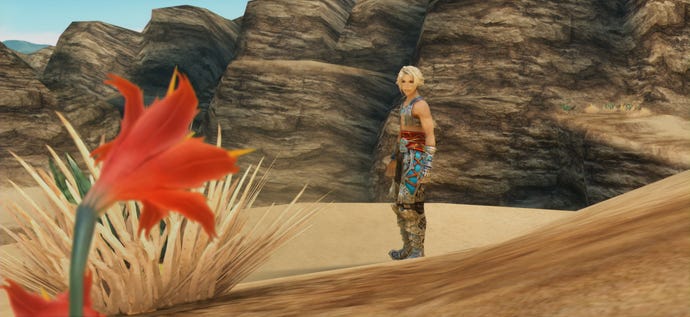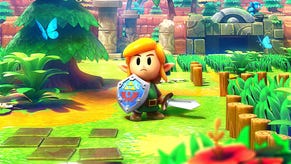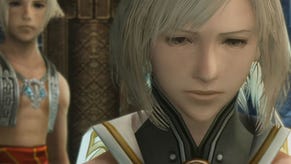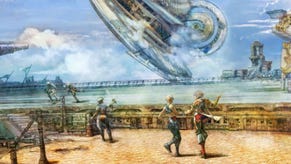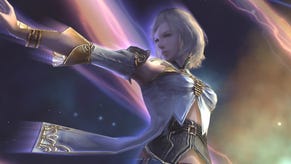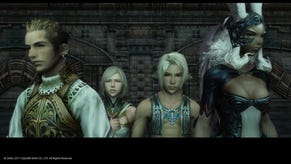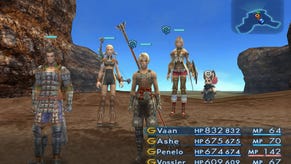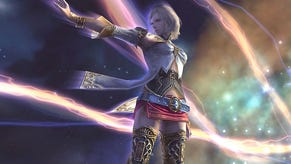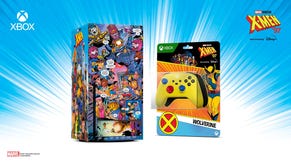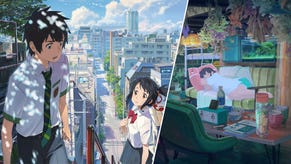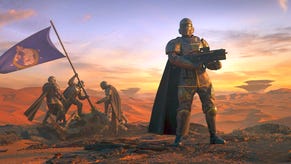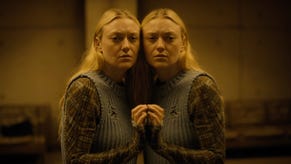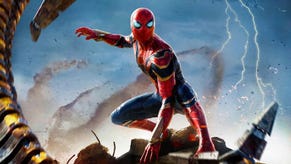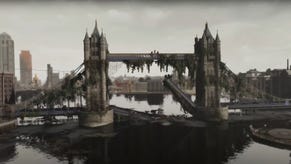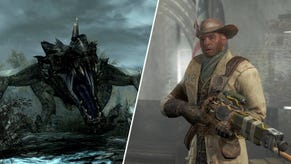Final Fantasy 12: The Zodiac Age looks to be the definitive version of a classic
Return to Ivalice.
If you head on over to metacritic and punch in 'Final Fantasy', you'll find the critic aggregate website is pretty accurate in its measurement of the top end of Square's blockbuster Japanese RPG series. Right at the top with an average score of 94 is Final Fantasy 9, the best one (don't even argue), and below that there's a four-way tie at the 92 point mark: Final Fantasy 12, 10, 7 and 6 Advance all sit at that very reasonable score. This is properly accurate as far as I'm concerned. This is a good top five.
The point of mentioning this is to point out that despite being one of the worst-selling post-FF7 entries Final Fantasy 12 is a bloody important game. Like 9 it's often forgotten in the face of the entries in the series that are larger cultural landmarks like FF7 and 10. For my money FF12 is the most mechanically rich entry in the series with the richest-ever game world built for an FF - even if the story told within it ultimately ends up letting that world down a touch.
For my money FF12 is the most mechanically rich entry in the series with the richest-ever game world built for an FF.
That makes the task for the team behind Final Fantasy 12: The Zodiac Age all the more difficult. Where the team behind FF10 HD Remaster simply had to tidy up and release a beloved classic that was one of the best-selling entries in the franchise, FF12 has a harder task. It sold several million less, so part of this repackaging is rooted in the ambition to bring this unarguably excellent game to a larger audience.
"Obviously, it'd be great if we can get a higher recognition for the game - we always want to get as good a recognition as we can," The Zodiac Age Producer Hiroaki Kato tells me. Kato's history is deeply tied in with FF12 - after working on the PlayOnline system that powered FF11's MMO systems he was attached to FF12's universe of Ivalice for many years, working on some FF Tactics games and both original versions of FF12. For him, The Zodiac Age is a little like returning home - and the same is true for Director Takashi Katano, who was the programming lead on the original release of FF12.
"I think we can say we've achieved what we wanted to do and reached our hopes for this game if we can get people who played the original version to play it again and think 'yeah, I loved this game when I played it first and it's even better now'. And then there's people who are new to Final Fantasy - for them to see and experience this core FF experience and this classic FF gameplay... I want to see them really appreciate that and get further into the series in that way. If we can achieve that, I think we'll have got where we wanted," Kato concludes.
In order to achieve these goals the team that Kato and Katano lead have focused on gentle iteration rather than upheaval - in part because FF12 already had one upheaval that we in the West never got to experience. After the original release of FF12 the studio went back to the game and completely reimagined its gameplay systems, with the end result being the International Zodiac Job System version of the game. The same world, story and characters were repackaged into a majorly overhauled combat and progression system that combined the basic tactical core of FF12 with job-based character progression inspired by the classic systems in FF3 and FF5. It was praised as an enormous improvement on an already great game at the time, but given that it came out for PS2 well into the 360 and PS3 generation, Square chose to never localise it for the West - fair enough.
That's where The Zodiac Age gets its name, and after a few hours with it it's immediately apparent that having a job system bolted onto FF12 makes an enormous difference to how you choose your party make-up. FF12 is perhaps more squad-driven than your average FF thanks to the fact that you can play as any character (in this version, even guest characters) and set up complicated instructions, gambits, that basically amount to beginners 'programming' of the AI for your party.
If prepared properly, battles can be made to play themselves - or you can pause combat and take a more hands-on approach to things. Indeed, at its best FF12 is all about preparation and planning, then when battle begins it erupts into flashes of colourful lines, spell effects, charging attacks and other HUD elements that must look utterly impenetrable to newcomers - but it's actually easy to understand thanks to the deft way the game introduces mechanics. FF12 casts you as more of a manager and overseer of battle than an active participant, but the clever way it keeps you busy spinning plates makes it just as thrilling.
In many ways, FF12 actually reached the freedom of play targeted in by Final Fantasy 15 a decade earlier - and by accident.
"The whole balance of the battle system and the job system has been reworked and tweaked - that gives a completely new feeling to the player in the game," Kato says, noting that the version of FF12's combat and progression in this version has never officially graced Western consoles. "That's going to be a big appeal, I think, for players over here."
With that overhaul in place, tweaks have been made for this version. Chief among them is the decision to allow characters to take on two different job roles at once - meaning you can combine two similar classes, such as knight and battlemage, or take two disparate ones, such as a magic-led class and a brawler-led class, mashing them together in one character's progression.
"The whole balance of the battle system and the job system has been reworked and tweaked - that gives a completely new feeling to the player in the game. That's going to be a big appeal, I think, for players over here." - Hiroaki Kato
This honestly seems mad: when you step back and consider it as a whole, each character has a ridiculous number of skills at their disposal. FF12 was always about battle preparation and doing things your own way, and The Zodiac Age seems happy to take this to an extreme.
"The person who was in charge of the reworking and tweaking of the battle system is Mr. Hiroyuki Ito, the classic battle designer for many of the great numbered FF games," Kato explains, revealing that Ito - FF12's original director - has still had a role on The Zodiac Age. "I think what he's achieved there is the fact that... it's got those universal things that make RPGs great. He's really good at distilling that and putting that into his games, and I think that's so universal that it's going to appeal to players now when it comes out in just the same way it did in the past. I think one of the big draws of it - that universal RPG goodness that he brings in."
This is something I agree with vehemently; in fact, I think Ito can very much be thought of as a Miyamoto-like figure for Japanese RPGs. The Active Time Battle system that defined Final Fantasy was his brainchild, and a number of his other innovations defined the genre in general. FF12 was directed by him, which explains its mechanical depth, and while he's not named as being involved with The Zodiac Age consistently, his shadow looms over this game for good reason.
"We checked with him constantly about what worked and what doesn't," Kato adds. Final Fantasy fans who joke and worry about Ito being locked away in a Square Enix Japan cupboard because he hasn't been heard of much since FF12 be assured: he's still there, and still exerting his influence.
Whereas some FFs have seen their gameplay mechanics age in a none too graceful way, FF12 holds up remarkably well. In places it feels way ahead of its time, and so that makes this a more obviously beneficial HD remaster than other titles. This game deserves to be experienced more. The features added are all about quality of life rather than disturbing that balance - and that makes sense.
Don't expect story additions or changes, for instance (a shame since the latter half of the story and protagonist Vaan's complete lack of agency are two of FF12's few weak points), but you will find two speeds of combat fast forward for repeat runs, speed runs or grinding. The remake also includes what Kato refers to as "the obvious things" - so you can now switch between Japanese and English voiceover on the fly, and the same goes for the original and a rearranged soundtrack. The visuals have been touched up but this is less of a stunning overhaul than in FF10 HD Remaster simply because the original source looked so much better to begin with.
Anyway, there's only so much one can write about a remake or a remaster of an existing game. Final Fantasy 12 deserved every point of that 92 critic average mentioned above, and The Zodiac Age looks like it's going to be the definitive version of FF12 - thus, the definitive version of one of Japan's finest RPGs.
"The whole overall approach was... we've got the game, we know it's a good game, we've got the base sorted out - now what can we add to that and put on to that to make it better?" Kato says with a grin. The truth is they didn't need to do much, and that's fine. Final Fantasy 12 is still amazing.
Final Fantasy 12: The Zodiac Age is coming to PS4 in July.
